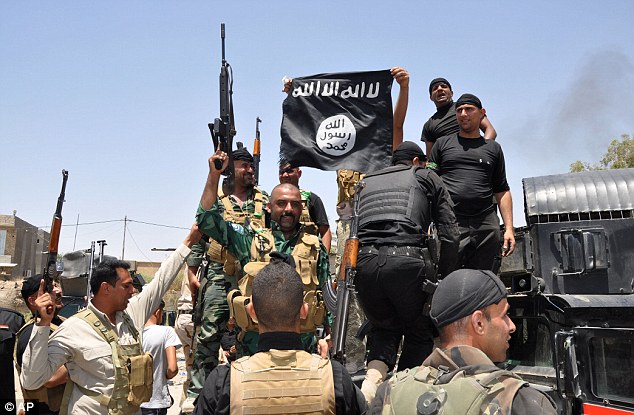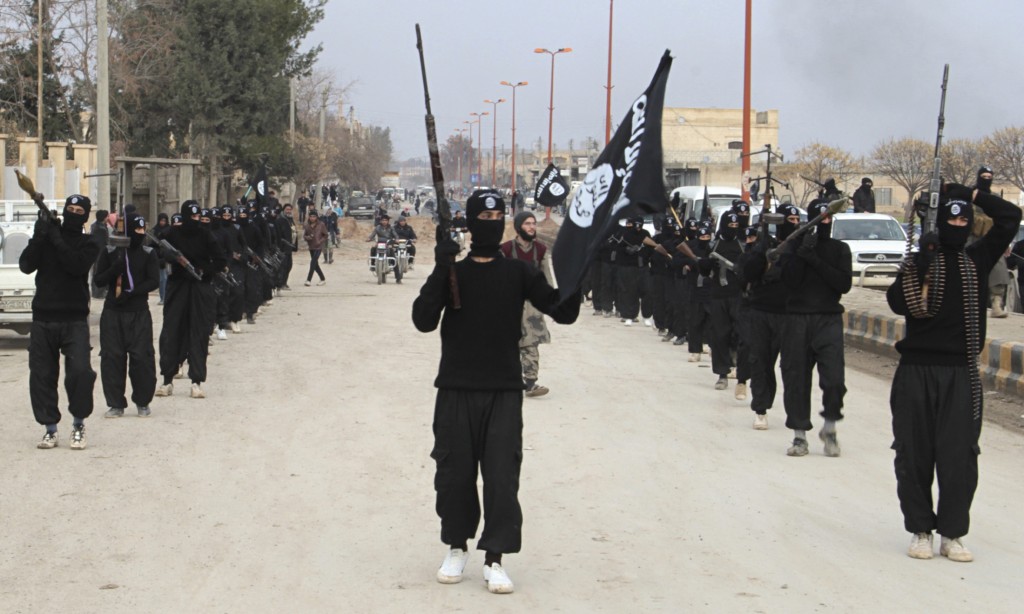World News – When President Obama lays out details of his war plan against ISIS on Wednesday he’s expected to authorize U.S. airstrikes against the terror group in Syria. But beating ISIS out of the Middle East won’t be simple.
 On one level, bombing ISIS is easy. The U.S. knows where the group operates. There’s no need for a ten-year hunt like the one for Osama bin Laden. The terror group has two capital cities, Mosul in Iraq and Raqqa in Syria. Al-Qaeda never had such an obvious home address.
On one level, bombing ISIS is easy. The U.S. knows where the group operates. There’s no need for a ten-year hunt like the one for Osama bin Laden. The terror group has two capital cities, Mosul in Iraq and Raqqa in Syria. Al-Qaeda never had such an obvious home address.
Finding a justification to attack ISIS is also simple. It has threatened to carry out another 9/11, beheaded two American journalists, slaughtered thousands of Iraqis and Syrians and is a danger to U.S. allies in the region. Many in the U.S. military believe ISIS needs to be immediately, and repeatedly, smashed by American drones and warplanes.
But what then happens to the Middle East – this seething cauldron of competing interests, religious passions, ethnic tensions, long memories and oil? The key question now, as before the Iraq invasion, is what happens after the U.S. starts bombing.
ISIS controls a territory roughly the size of Maryland where 8 million people live. If it’s attacked and toppled, who will fill the void? In Iraq, it will be the Kurdish fighters or the Iraqi army. The two don’t trust each other and have different objectives for the territory they control. The Kurds are laying the foundation for a future independent state. The Iraqi army is increasingly an Iranian-guided, Shiite force.
The U.S. spent billions of dollars to build a secular, professional national Iraqi army but failed because, despite all the U.S.-supplied guns, tanks and planes, the Iraqi military fell apart when challenged by a band of terrorists. President Obama wants to reconstitute it now as part of his ISIS strategy. Why would it work this time when it didn’t before, even as U.S. troops were standing next to Iraqi soldiers in Baghdad, shoulder to shoulder?
In Syria, the question is even more vexing. In Iraq, at least, Washington can work with the independence-minded Kurds and unreliable Iraqi soldiers. In Syria, there is no partner on the ground at all. The moderate Syrian rebel group – the Free Syrian Army – that Obama wants to partner with has withered and died. It was starved of weapons and support despite three years of promises from Washington that the aid was coming.
In lieu of moderate rebels, the administration could rely on President Bashar Assad’s army to do mop-up operations once the airstrikes against ISIS begin. But the Syrian regime has been monstrously brutal to its people and is largely responsible for allowing ISIS to grow in the first place. The other ground forces in Syria are Hezbollah, Iran and a panoply of Islamic groups, some of them just as Anti-American as ISIS.
The cost of doing nothing against ISIS is high. The group is vicious, ambitious and, according to every security official I’ve interviewed, should be not allowed to have a safe haven anywhere. However, the cost of trying to dislodge ISIS is thinking about what replaces it. It means reviving moderate rebels, as Obama says he will do, rebuilding the Iraqi army the U.S. already built once and trying to balance competing interests across the Middle East over the future of Iraq and Syria.
Bombing ISIS is easy. It will be popular, at first –- at home and even the Islamic world. Who wouldn’t want to bomb a group as odious as ISIS? But filling the vacuum, after ignoring the war in Syria for three years, could easily become the main foreign policy preoccupation for this administration for years to come – and there are few assurances of success.
BY RICHARD ENGEL, NBCnews.com

